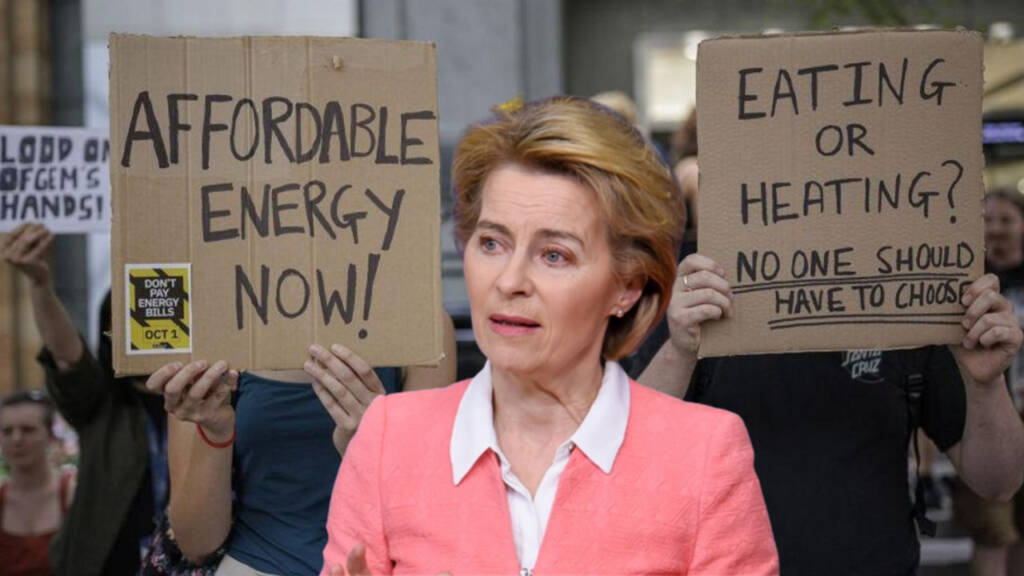Following the invasion of Ukraine, Russia’s supply of gas to Europe has decreased, driving up the price of the fuel and raising the cost of electricity in its wake.
On August 26, wholesale power rates in Germany and France set new records, reaching 850 euros and more than 1,000 euros per megawatt hour, respectively (MWh).
In contrast, the cost per MWh last year was about 85 euros. How did European citizens get into this electricity crisis?
Faulty policies
A notable illustration of what market fundamentalism has done to the world’s electricity networks is the power industry in the European Union.
The EU required its member states to separate the electricity grid from the power generating stations and privatise the plants to form new businesses that would compete to supply electricity to a new corporation that owned the grid. This company would then lease its wires to a large number of other businesses that would purchase power in bulk and compete with one another for the retail business of households and businesses.
The idea was that competition among retailers would guarantee the benefits of low pricing to end customers. Additionally, high-quality service and competition among manufacturers would reduce the wholesale price.
Sounds complicated, right? Well, it is. That’s why, none of this could be made to work in theory, let alone in practice. Furthermore, the pricing of the electricity is inflated which hurts customers. EU follows the technique of marginal-cost pricing, which required that the wholesale cost of every kilowatt be equal to the cost of the most expensive kilowatt.
This is done without considering that electricity is produced in multiple ways. You must realise why the electricity prices are booming nowadays. The costliest way to produce electricity after the Ukraine war is through gas and that impacts citizens and households.
German Chancellor Olaf Scholz said a week back, “Non-gas electricity companies, such as nuclear, solar or renewable firms, had been able to “make extra profits because the price is determined by the electricity produced with gas.”
Even French President appealed for energy reform. He said, “The price of electricity must be formed more coherently.” He even went on to say that he’d defy the bloc if needed, “If the 27 EU countries won’t reach an agreement on Friday, this will be introduced in any case at the national level.”
Also Read: UK is doomed, and Belgium is making fortunes out of it
EU’s energy reform: Worse or Worst?
After grievances and criticism from Europe’s citizens, the EU finally decided to bring forth a change in energy market reform. However, the changes will not only exacerbate the problem of non-gas energy companies but also continue inflicting pain on people’s pockets.
European Commission President Von der Leyen abandoned the concept of capping the price of natural gas, a significant departure from her earlier plans, although she ‘promised’ to “keep working on lower gas prices.” No mechanism or policy was iterated by her on how she’ll do it.
Furthermore, she added that fossil fuel firms will also need to make a “crisis contribution” due to their “huge profits.” Fossil fuel companies use a lot of energy and are already facing huge charges of ETS. They have long complained that having to pay for the carbon emissions puts them at a disadvantage compared to industries outside of the EU.
€140bn would be raised from an emergency levy on the profits of non-gas power producers towards easing the impact of rising energy bills. However, no details on how it’d work have been issued. The promises seem similar to what were made to Ukraine prior to the war.
Adding to it, the renewables industry fears investor uncertainty over the ‘patchwork’ EU revenue cap. There was no mention of how customers are charged with the most expensive kilowatt. Rather than, nipping the trouble in the bud, the new reform does nothing but creates a mirage of change.
All in all, with Winter approaching, Europe faces an imminent danger of people dying of cold or hunger. They would be in a tussle about whether to stay warm or to have a one-time meal. Bad times await for tax-paying honest citizens of Europe.
